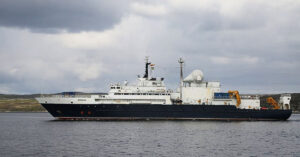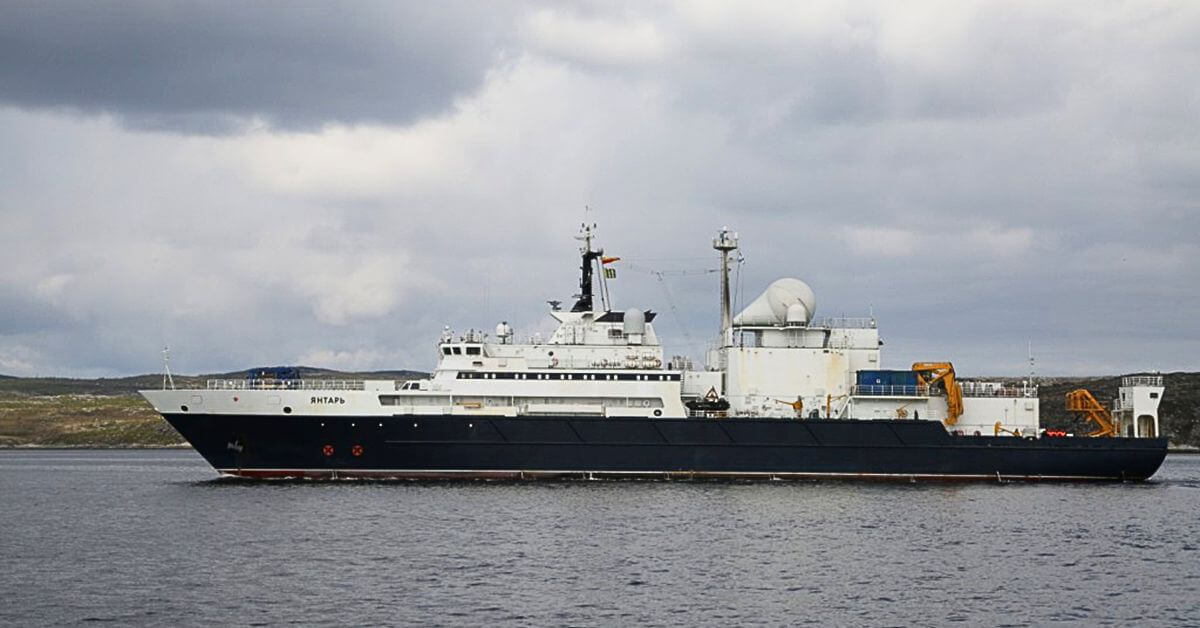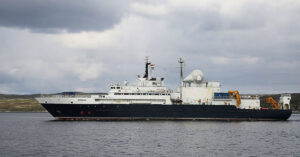
Crew Arrested After South Korean Ferry Runs Aground With 267 People Aboard
November 20, 2025
Iran Releases Tanker & All 21 Crew Seized In Strait Of Hormuz After Offloading Fuel Cargo
November 20, 2025

The United Kingdom has put its military on alert after a Russian spy ship, the Yantar, used lasers to disrupt RAF pilots monitoring its movements near British waters, Defense Secretary John Healey said on Wednesday. He called the action “deeply dangerous” and said the government was taking it very seriously.
The lasers were aimed at RAF pilots while the ship was being followed by a Royal Navy frigate and an RAF Poseidon P-8 surveillance plane. Healey said this is the first time the Yantar has used lasers against British pilots. He added that the UK is ready to respond depending on the ship’s next move.
The Yantar is currently operating north of Scotland, near the edge of British waters. Healey said it had entered UK waters twice this year. He also said he had changed the Royal Navy’s rules of engagement so the ship could be followed and monitored more closely in UK waters.
Healey issued a message to Moscow, saying the UK knows what the ship is doing and is prepared to act if it moves south. He did not reveal the military options, saying that would only inform Russian authorities.
The Yantar entered service in 2015 and is operated by Russia’s Main Directorate for Deep Sea Research (GUGI). Western officials believe the ship maps undersea cables and gathers intelligence, although Russia calls it an oceanic research vessel.
The ship’s current location is unknown. It last broadcast its position on 2 November in the Baltic Sea, north of Latvia. On 6 November, the Dutch Navy said it escorted the Yantar out of the North Sea after it came near Dutch waters. On Wednesday, flight data showed an RAF Poseidon P-8 circling off Scotland, but it’s unclear if it was tracking the ship.
The Russian Embassy denied targeting UK interests, saying its actions were not aimed at the UK and blaming London for increasing tensions in Europe.
Security experts said the laser use is an escalation. Elisabeth Braw, a senior fellow at the Atlantic Council, said the lasers were likely meant to hinder pilots and were provocative even if they did not cause injury.
UK lawmakers, including Matt Western, chair of the Joint Committee on the National Security Strategy, said the incident shows Russia remains a real threat. He welcomed Healey’s response but said stronger action might be needed.
Healey also warned about global threats, including Russian incursions into NATO airspace and tensions with China.
The UK Ministry of Defence has faced criticism for relying too much on US support, with a parliamentary committee urging the UK and European allies to strengthen their own defences.
Healey said the government disagrees on the US threat to NATO but agrees the UK should accelerate its defence plans, which the Labour government has been doing since taking power.
References: Reuters, BBC
Source: Maritime Shipping News


